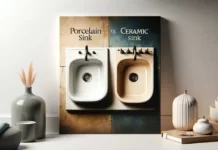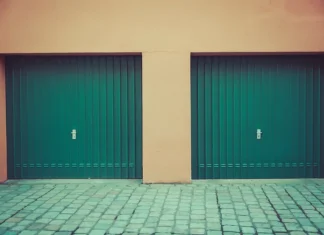What is a water heater, and what are the common types
A water heater is a household appliance designed to heat and store water for various purposes. It provides continuous hot water for bathing, showering, washing dishes, and laundry. Water heaters are typically installed in homes and other buildings where a consistent and reliable source of hot water is required.
Types of Water Heaters
The two main types of water heaters commonly used are tank-based and tankless water heaters:
1. Tank-based Water Heater
This type of water heater consists of a large storage tank where water is heated and stored. The tank is insulated to maintain the temperature of the stored hot water until it is needed. Tank-based water heaters are available in different sizes, typically 20 to 80 gallons, to accommodate varying hot water usage demands.
2. Tankless Water Heater
Unlike tank-based water heaters, tankless water heaters do not store hot water in a large tank. Instead, they heat the water as it flows through the unit. Tankless water heaters are more energy-efficient because they only heat water when there is a demand. They are compact and can be mounted on walls, saving space compared to tank-based models.
Water heaters work by utilizing a heating element, such as a gas burner or electric heating element, to raise the temperature of the water to the desired level. The heating element is controlled by a thermostat that maintains the water at a consistent temperature. When a hot water tap is opened in the house, cold water flows into the water heater through an inlet pipe. The heating element then heats the incoming water as it passes through, providing a continuous hot water supply.
Water heaters are typically located in utility rooms, basements, or garages, where they can be easily accessed for maintenance and repairs. Regular maintenance, such as flushing the tank to remove sediment buildup and checking the pressure relief valve, is important to ensure the efficient and safe operation of the water heater.
A water heater is an important appliance that heats and stores water for many household tasks that need hot water. It provides convenience, comfort, and hygiene by ensuring a continuous hot water supply whenever needed. Whether tank-based or tankless, a water heater is vital in homes, enabling us to enjoy hot showers, clean dishes, and carry out daily tasks efficiently.
A Leaking Water Heater
A leaking water heater can cause concern and may leave you wondering if it is safe to continue using the appliance, particularly when it comes to essential tasks like showering. This article will address the common questions surrounding a leaking water heater and provide insights into the potential risks. We will also discuss possible reasons for water heater leaks and suggest solutions to address the issue effectively.
Can I Take a Shower If My Water Heater Is Leaking?
When facing a leaking water heater, it is important to exercise caution and prioritize safety. Here are some key points to consider before deciding whether it is safe to take a shower:
1. Assess the Severity of the Leak
The first step is to evaluate the severity of the leak. The immediate risk may be relatively low if it is a minor drip or trickle. However, if the leak is substantial, continuous, or has pooled water, it is best to avoid using the water heater until the issue is resolved.
2. Electrical Hazards
If the leaking water comes into contact with the electrical components of the water heater or electrical outlets, it poses a serious electrical hazard. In such cases, it is crucial to turn off the power supply to the water heater and refrain from using any electrical devices near the leak.
3. Risk of Water Damage
A leaking water heater can cause significant water damage to your home. Suppose the leak is located in an area that can lead to structural damage, such as a basement or near valuable possessions. In that case, avoiding using the water heater until the leak is fixed is advisable.
Reasons for Water Heater Leaks – is a leaking water heater Dangerous?
Understanding the possible causes of water heater leaks can help you identify the issue and determine the appropriate action. Here are a few common reasons for water heater leaks:
1. Pressure Relief Valve (PRV) Issues
The PRV is a safety device that releases excess pressure from the water heater tank. If the PRV malfunctions or the pressure inside the tank becomes too high, it can result in leaks.
2. Loose or Damaged Connections
Over time, the connections between pipes and fittings in the water heater system can become loose or damaged. This can cause leaks at connection points.
3. Corrosion and Rust
Corrosion and rust can weaken the tank or components of the water heater, leading to leaks. Corrosion often occurs due to age, poor maintenance, or exposure to corrosive elements.
4. Buildup of sediment:
Over time, sediment, minerals, and other junk can settle at the bottom of the water heater tank. This sediment can cause overheating and lead to leaks or other issues.
Solutions for Water Heater Leaks
Here are some potential solutions to address water heater leaks:
1. Professional Inspection
It is recommended to have a qualified plumber inspect the water heater to determine the source and severity of the leak. They can provide expert advice on the best action based on your situation.
2. Pressure Relief Valve Replacement
If the pressure relief valve is faulty, it may need to be replaced. A plumber can diagnose the issue and install a new valve if necessary.
3. Tighten Connections
If the leak is due to loose or damaged connections, a plumber can tighten or repair the connections to resolve the issue.
4. Tank Replacement
Replacing the water heater may be the most effective long-term solution in cases of severe corrosion or tank damage.
Conclusion
While taking a shower, if your water heater is leaking is not recommended. The severity and associated risks should be evaluated before making a decision. Safety should always be the priority, and seeking professional assistance is crucial in addressing water heater leaks.












